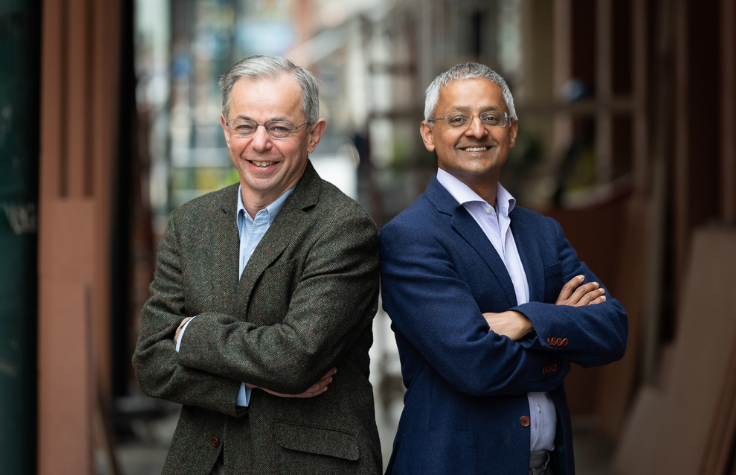
May 18, 2021
Two genomic revolutionaries, Professor Sir Shankar Balasubramanian and Professor Sir David Klenerman, who together invented the sequencing by synthesis (SBS) technology which serves as the foundation for all of Illumina’s Next Generation Sequencing (NGS) instruments, have been awarded the prestigious honor of the Millennium Technology Prize.
The Millennium Technology Prize, awarded by Technology Academy Finland (TAF), highlights the extensive impact of science and innovation on the wellbeing of society. The announcement of the 2020 award was delayed due to the COVID-19 pandemic.
Sir Shankar and Sir David, both professors at Cambridge University, began their collaboration in 1994 with the objective of sequencing an individual genome at lower cost and higher speed. Their creative discussions in the lab and the local campus pub led to the development of the SBS technology that today underpins the largest sequencing programs in the world.
The Professors spun out their discovery to form the start-up company, Solexa, in 1998. Illumina acquired Solexa in early 2007 and has since developed the original technology to make NGS faster and cheaper at a rate that outpaces Moore's Law. In 2007, the cost to sequence an entire human genome was US $150,000 and today it is $600. Illumina has a technology roadmap that aims to drive the cost down to $100.
Learn more about the history and evolution of Illumina’s NGS.


